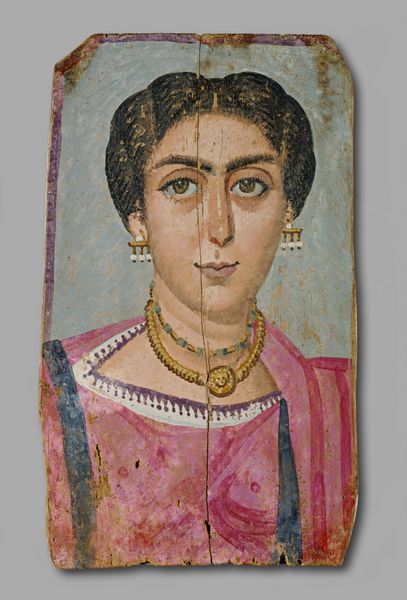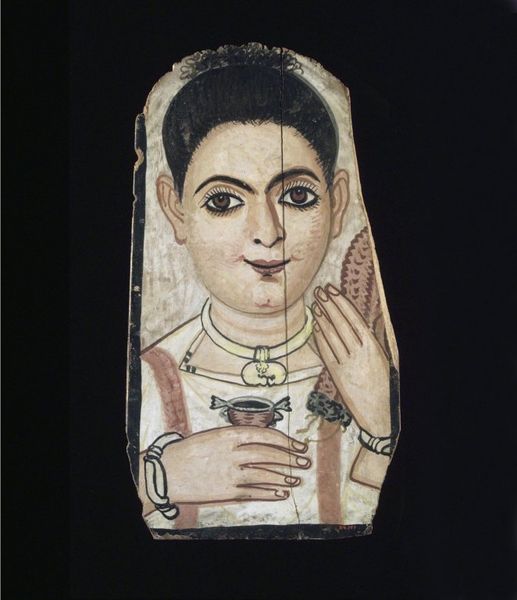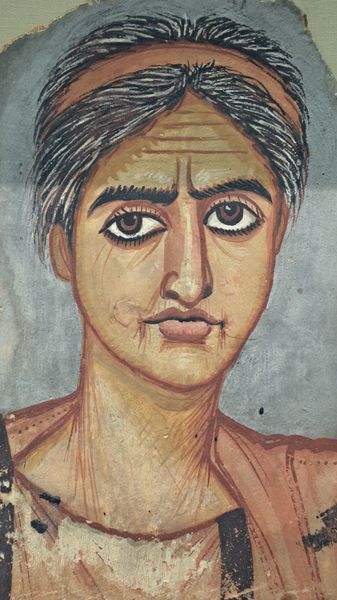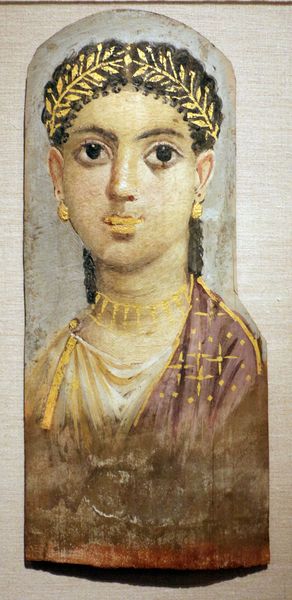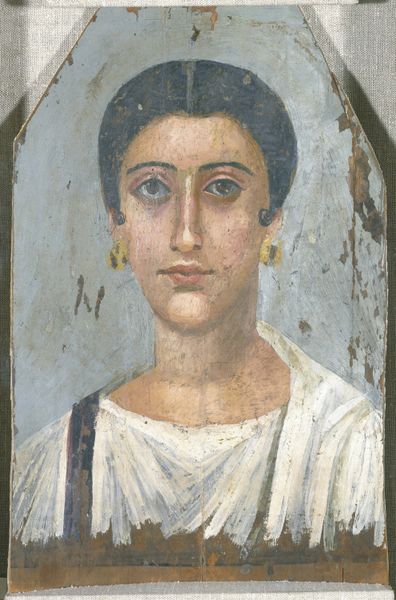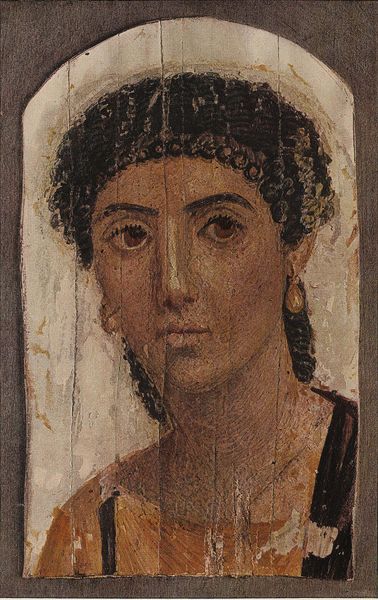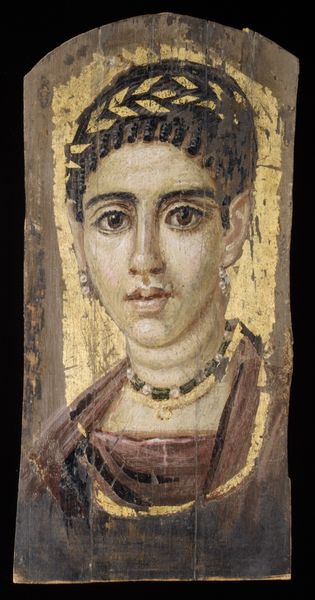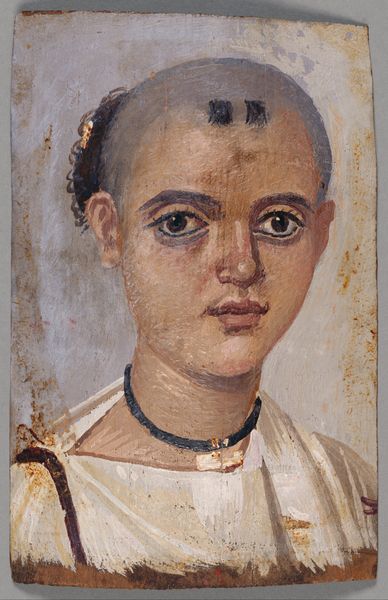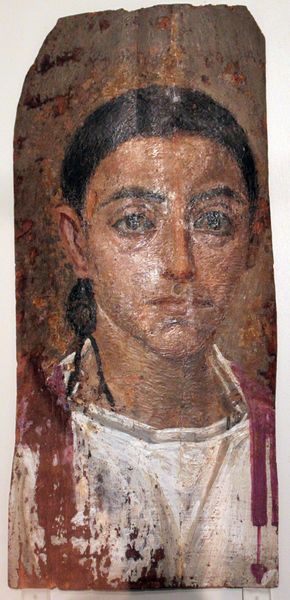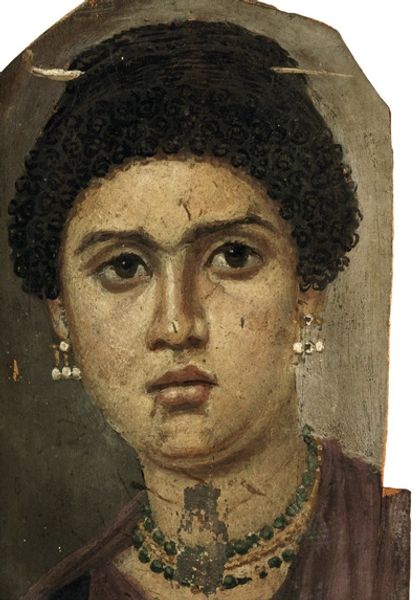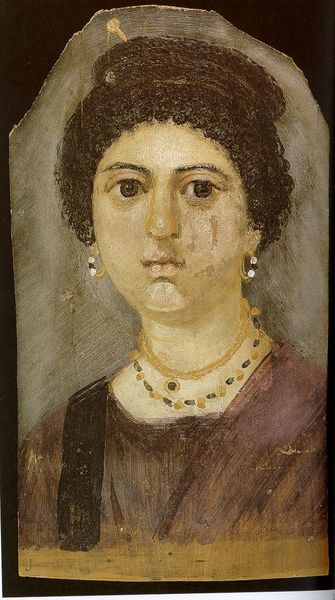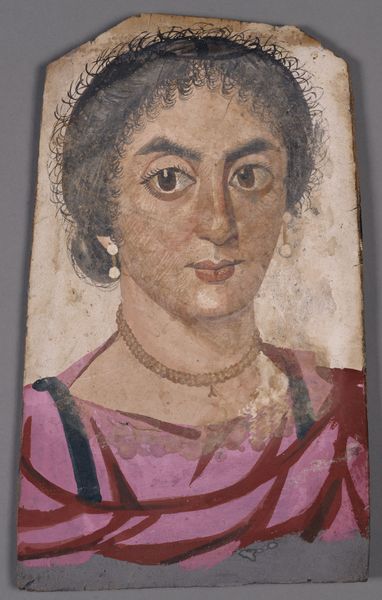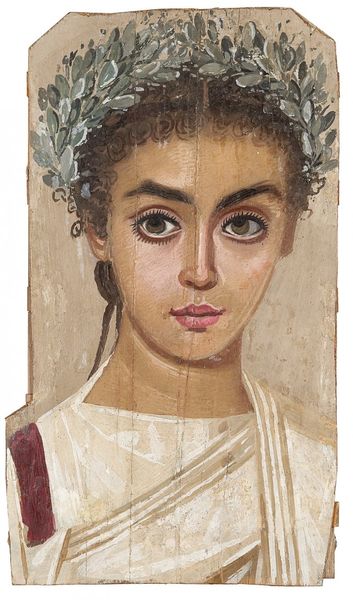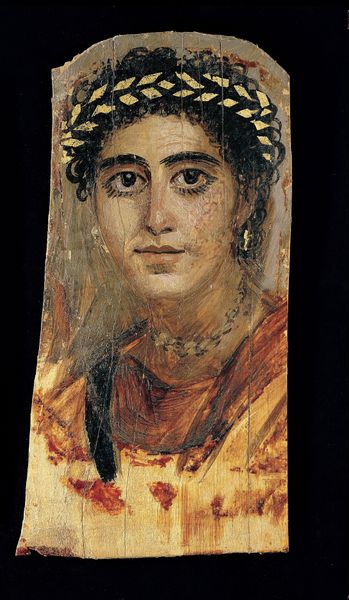
tempera, painting
#
portrait
#
tempera
#
painting
#
ancient-egyptian-art
#
oil painting
#
portrait reference
#
ancient-mediterranean
Copyright: Public domain
This portrait of a boy with a floral garland was made in Roman Egypt, sometime between 50 and 250 AD, using encaustic on wood. The encaustic technique involves suspending pigment in hot wax, creating a luminous, durable surface. Look closely, and you'll see the distinct texture created by the brushstrokes of the molten wax. The warm tones of the boy's skin are achieved through subtle variations in the wax mixture, while the floral garland and other details showcase the artist's mastery of blending and layering. The wood panel itself would have been carefully prepared, likely from locally sourced timber. What's interesting is that these portraits weren't just art objects, but grave goods, commissioned to be placed over the faces of mummified individuals. The amount of work involved reflects the social status of the deceased and their family. By appreciating the materials and making process, we see how craft traditions intersected with elite social practices in Roman Egypt.
Comments
No comments
Be the first to comment and join the conversation on the ultimate creative platform.
